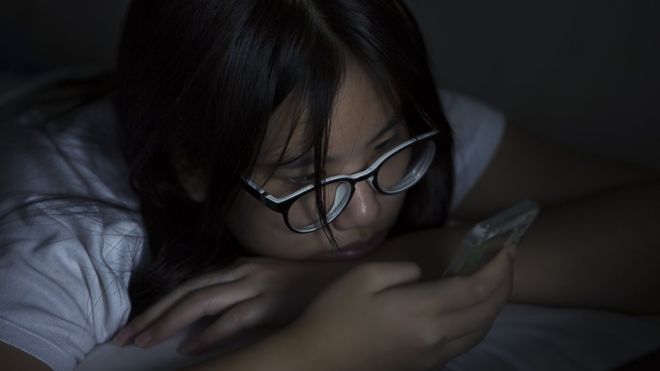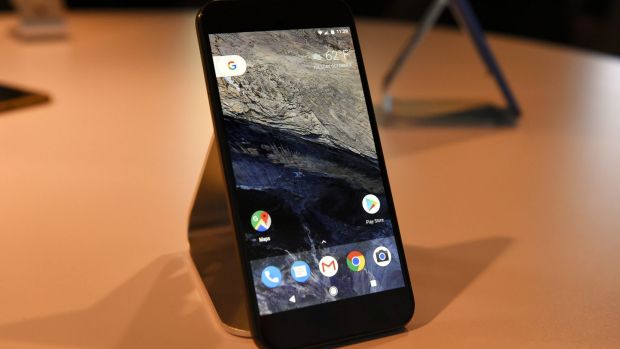

Almost half (45%) of young people are checking their mobile phones after they have gone to bed, a poll suggests.
A survey of 2,750 11- to 18-year-olds found one in 10 admitted checking their mobile phones for notifications at least 10 times a night.
The poll was carried out by Digital Awareness UK and the Headmasters’ and Headmistresses’ Conference.
The organisations warn night-time usage of mobiles means pupils are coming to school tired and unable to concentrate.
They recommend having a “digital detox” and putting mobile devices away for 90 minutes before lights-out or keeping them out of the bedroom.
Social media
Of the 45% of survey respondents who check their phones when they should be sleeping, almost all (94%) are on social media – with a tenth saying they would feel stressed about missing out if they did not check their device before going to sleep.
Of this group, 75% are listening to music and over half (57%) are watching films.
A third (32%) of these youngsters say their parents are not aware that they check their mobile device after going to bed.
The findings also show:
- 68% of all respondents say using their mobile devices at night affects their school work
- a quarter say they feel tired during the day because of how often they use their mobile device at night
- almost half (42%) keep their phone next to their bed at night
10 screen-time tips from Digital Awareness UK
- Refrain from using screens 90 minutes before bedtime
- Turn off notifications, or activate “do not disturb”, “aeroplane mode” or mute settings. Turn the phone off altogether if you can
- Reduce blue light exposure, which can disrupt sleep. For example, most Apple devices have the “night shift mode”, which changes the colour temperature of your device to reduce exposure
- Try and break the habit of unprompted device checking
- Keep your phone in a location that prevents you from seeing, hearing or even reaching for it
- Use a screen time tracker apps, such as RealizD and Moment, that can showcase the amount of time you are spending on your device. Some of these apps allow you to set usage restrictions
- Digital detox – take a break from devices altogether or set times that you will turn your phone off
- Switch the habit – in the 90 minutes running up to bedtime, get stuck into a good book, practice meditation or have a relaxing bubble bath
- Think. If we think about the reasons why we are using mobile devices at night time, we would often think twice
- If you take control back by exercising any of the tips listed above, give yourself a pat on the back and a treat
 Image copyrightTHINKSTOCK
Image copyrightTHINKSTOCKCharlotte Robertson, DAUK co-founder, said: “One of the biggest topics around at the moment is excessive social media consumption and how it is affecting our physical and emotional wellbeing.
“A lot of them [children] are waking up sometimes with over 100 notifications from conversations that have happened overnight.
“They want to be that person that is responding at 01:00, and seen to be quite cool, to make sure they catch the joke – it’s a huge driver, that anxiety of wanting to know what’s happened.”
HMC chairman Mike Buchanan said: “The data suggests those who do check their phones, they’re mostly driven by not wishing to miss out.
“Clearly there are some times when children are not concentrating because they are tired, and that has an obvious impact on their ability to keep up with what’s going on – there is a desire to stay within the group.
“It’s not that this [technology] is all horrible and terrible and that we should all be wringing our hands.
“It is more a case that here’s the reality, let’s use it and try to influence the use of technology in a positive way.”
[Source:-BBC]





